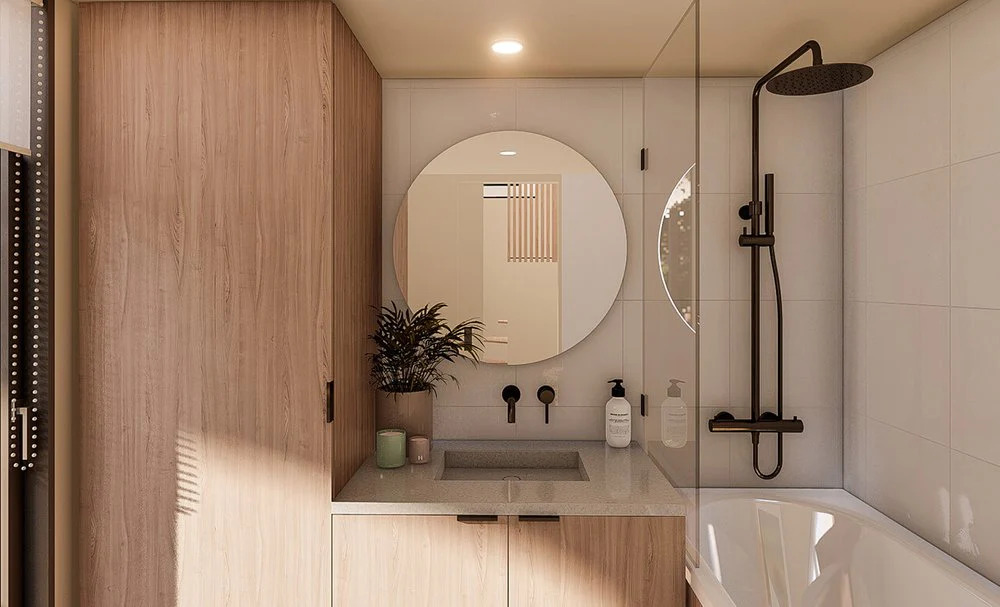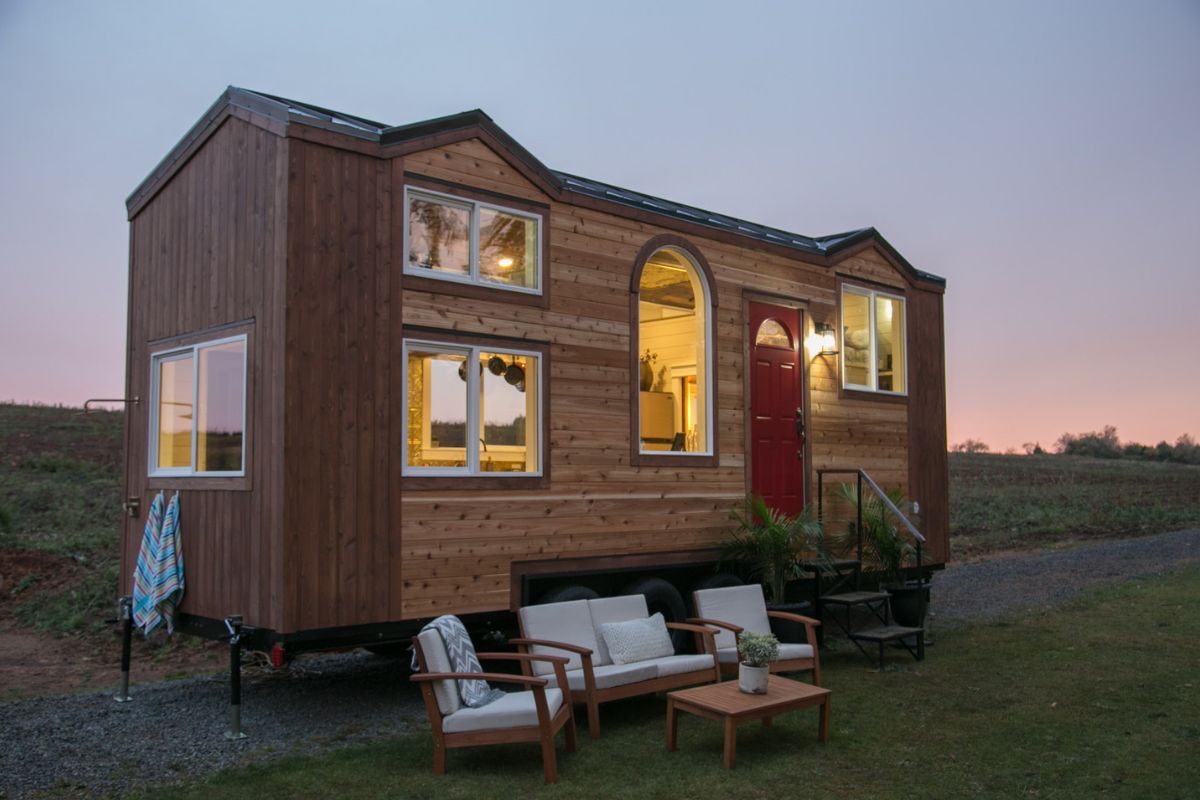How to Improve HVAC Efficiency in Rental Properties

If you’re wondering how to make your home more efficient, maximize energy savings, and tenant comfort, you should pay attention to your HVAC system. Short for heating, ventilation, and air conditioning, poor maintenance of this crucial home system can lead to higher utility costs, frequent tenant complaints, and decreased property value.
Are you looking for practical tips to boost your home's efficiency? Do you want to know how to improve HVAC efficiency in rental properties? This comprehensive guide has all the answers. From simple maintenance tasks and upgrades to adopting smart technologies and implementing energy-saving practices, we'll explore practical ways to enhance HVAC performance, reduce energy consumption, and create a more sustainable and comfortable living environment for tenants.
How to Improve HVAC Efficiency in Rental Properties
Regular Maintenance
As a vital component of your house, you should schedule routine HVAC maintenance. Frequent filter replacements, coil cleaning, and ductwork inspections can help you improve the system's efficiency and nip problems in the bud. Thus, routine inspections help ensure optimal system performance reduces energy waste and prolong the lifespan of the equipment.
Upgrade to Energy-Efficient Equipment
Besides regular maintenance, consider upgrading old HVAC units to energy-efficient models. Sometimes the saying, "If it ain't broke, don't fix it," can keep you from optimizing your property's HVAC efficiency. Look for systems with high SEER (Seasonal Energy Efficiency Ratio) ratings for air conditioners and AFUE (Annual Fuel Utilization Efficiency) ratings for furnaces. These upgrades can significantly reduce energy consumption, save on utility costs, and increase tenant satisfaction.
Embrace Smart Thermostats
Smart thermostats are an excellent way to increase tenant comfort while lowering energy consumption. These automatically adjustable devices can significantly boost energy savings even when no one is home. A professionally managed rental comes with maintenance responsibilities, and not all of them can be automated, so you might need help when your tenants are away or your property is vacant. For improved results, install programmable or smart thermostats that allow tenants to set temperature schedules based on occupancy.
Improve Insulation
Enhance the insulation in your rental properties to prevent air leaks and temperature fluctuations. Sealing off the spaces that limit the efficiency of your heating and cooling system can reduce your operational cost and also promote sustainability. Properly insulated walls, windows, and ductwork minimize heat transfer and improve HVAC system efficiency.
Optimize Airflow
Besides improving insulation, optimizing airflow is an excellent way to get the most out of your HVAC system. Ensure proper airflow by cleaning vents, removing obstructions, and balancing the system. Good airflow allows for efficient heating and cooling throughout the property, reducing utility bills and enhancing tenant comfort.
Monitor Energy Consumption
One of the best ways to improve efficiency is to track your energy consumption. Regularly monitor energy bills and track HVAC system performance. Unusual spikes in energy usage may indicate inefficiencies or equipment malfunctions that need attention. You can even hire a professional to conduct an energy audit and evaluate the overall efficiency of your HVAC system. It there is a surge in your energy consumption, consider maintenance for your water heater or AC unit.
Educate Tenants
There's only so much you can do as a landlord; that's why educating your tenants on the premise more often than you is vital. Promote energy-saving practices among tenants, such as adjusting thermostat settings, using ceiling fans for air circulation, and keeping doors and windows sealed. You can also provide educational materials or conduct workshops to raise awareness and encourage tenants to adopt energy-efficient habits.
Here are some energy-saving practices for tenants:
- Encourage them to set the thermostat to an energy-saving temperature range. It is ideal to lower the temperature during the winter and raise it during the summer.
- Keep vents and air registers unobstructed to ensure proper airflow. Also, clean or replace air filters regularly to maintain optimal system performance.
- Advise tenants to use blinds, curtains, or shades to regulate sunlight and insulate against heat loss or gain. Closing window coverings during hot summer days can help keep the interior cool.
- Encourage tenants to monitor their energy usage by reviewing utility bills regularly. This can help them identify patterns, track improvements, and become more aware of their energy consumption.
Choosing Energy-Efficient HVAC Systems
Energy Efficiency Ratings
Look for systems with high SEER (Seasonal Energy Efficiency Ratio) ratings for air conditioners and AFUE (Annual Fuel Utilization Efficiency) ratings for furnaces. Higher ratings indicate more significant energy efficiency and lower operating costs.
Proper Sizing
Ensure that the HVAC system is appropriately sized for the rental property. Undersized systems may need help to meet heating and cooling demands, resulting in decreased efficiency, while oversized systems can lead to short cycling and energy waste. Sizing is also essential in any guide on changing an HVAC filter.
Energy-Saving Features
Opt for systems that offer energy-saving features such as variable-speed motors, which can adjust airflow based on demand, and programmable or smart thermostats that allow for customized temperature schedules and energy-saving settings.
Warranty and Support
Check the warranty coverage and support offered by the HVAC manufacturer. A comprehensive warranty can provide peace of mind and protection against potential system issues.
Energy Star Certification
Look for HVAC systems that are Energy Star certified. Energy Star is a trusted symbol of energy efficiency, and certified products meet strict energy performance standards set by the Environmental Protection Agency (EPA).
Importance of Regular Maintenance
1. Optimal Performance
Regular maintenance keeps the HVAC system running smoothly. Make it a habit to clean coils, change filters, and inspect components as needed. It also allows for proper airflow, reduces strain on the system, and ensures efficient heating and cooling. Well-maintained systems perform better, resulting in improved tenant comfort.
2. Energy Efficiency
A properly maintained HVAC system operates more efficiently, reducing energy waste and lowering utility bills. Dirty filters, clogged coils, or malfunctioning components can decrease efficiency, resulting in higher energy consumption and costs. Regular maintenance helps identify and address these issues, improving energy efficiency and reducing environmental impact.
3. Cost Savings
Proactive maintenance helps identify potential problems early on, preventing costly breakdowns and repairs. Regular inspections and tune-ups can catch minor issues before they escalate into significant system failures. By addressing maintenance needs promptly, rental property owners can avoid expensive emergency repairs and preserve the value of their investment.
4. Extended Equipment Lifespan
HVAC systems are significant investments, and regular maintenance helps extend their lifespan. Proper care reduces wear and tear and increases the longevity of your system. Tasks like lubricating moving parts, checking electrical connections, and cleaning components, prolong the need for replacement, saving on capital expenditures in the long run.
Conclusion
Every landlord ought to know how to improve HVAC efficiency in rental properties. Prioritizing this system's efficiency can significantly reduce operating costs, enhance tenant satisfaction, and ensure sustainability. From regular maintenance to improving insulation, optimizing airflow, and educating your tenants, you can use many strategies to extend your HVAC system's lifespan. However, choosing an energy-efficient system can help you significantly. If you need assistance with maintenance, consider hiring a professional property manager that can help you practice energy-saving strategies and contribute to a more positive tenant experience.








.jpg)
